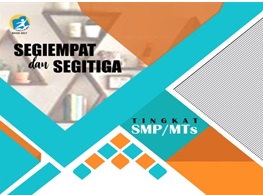
Mathematical Learning Development using Discovery Learning Model to Improve Mathematical Understanding Skills of Students
Abstract
Keywords
Full Text:
PDFReferences
Dina, A., Mawarsari, V. D., & Suprapto, R. (2015), Implementasi Kurikulum 2013 Pada Perangkat Pembelajaran Model Discovery Learning Pendekatan Scientific Terhadap Kemampuan Komunikasi Matematis Materi Geometri SMK. Journal of Mathematics Education Studies, 2(1), 22-31.
Fatmawati, A. (2016). Pengembangan Perangkat Pembelajaran Konsep Pencemaran Lingkungan Menggunakan Model Pembelajaran Berdasarkan Masalah untuk SMA Kelas X. Jurnal EduSains, 4(2), 94-103.
Heleni, S., & Zulkarnain. (2018). The Influence of Mathematical Thinking Ability with Modified MOORE Method on Learning Outcomes of Basic Mathematic II Chemical Education Students. Journal of Educational Sciences, 2(2), 33-41.
Hendriana, H., Eti, E., & Sumarmo, U. (2017). Hard Skills dan Soft Skills. Bandung: PT Refika Aditama.
Khomsiatun, S., & Retnawati, H. (2015). Pengembangan Perangkat Pembelajaran dengan Penemuan Terbimbing untuk Meningkatkan Kemampuan Pemecahan Masalah. Jurnal Riset Pendidikan Matematika, 2(1), 92-106.
Kurniawan, D. (2016). Penerapan Model Pembelajaran Kooperatif Tipe Team Games Tournament (TGT) Dengan Menggunakan LKS Pada Materi Pokok Segi Empat Untuk Meningkatkan Aktivitas Dan Prestasi Belajar Siswa Kelas VII-C Di SMP Negeri 20 Mataram Tahun Pelajaran 2014/2015. Jurnal Ilmiah Mandala Education, 2(1), 87-96.
Muna, D. N., & Afriansyah, E. A., (2016). Peningkatan Kemampuan Pemahaman Matematis Siswa melalui Pembelajaran Kooperatif Teknik Kancing Gemerencing dan Number Head Together. Jurnal Pendidikan Matematika STKIP Garut, 5(2), 169-176.
Rahmiati, Musdi, E., & Fauzi, A. (2017). Pengembangan Perangkat Pembelajaran Matematika Berbasis Discovery Learning Untuk Meningkatkan Kemampuan Pemecahan Masalah Siswa Kelas VIII SMP. Jurnal Mosharafa, 6(2), 267-272.
Setyosari, P. (2013). Metode Penelitian Pendidikan & Pengembangan. Jakarta: Kencana Prenadamedia.
Suarman, Hendripides, & Hikmah, N. (2018). Development of Innovative Teaching Materials through Scientific Approach. Journal of Educational Sciences, 2(2), 14-22.
Widoyoko, E. P. (2013). Teknik Penyusunan Instrumen Penelitian. Yogyakarta: Pustaka Belajar.
Yennita, Khasyyatillah, I., Gibran, & Irianti, M. (2018). Development of Worksheet Based on High-Order Thinking Skills to Imporove High-Order Thinking Skills of the Students. Journal of Educational Sciences, 2(1), 37-45.
Yulius, B., Irwan., & Yerizon. (2017). Pengembangan Perangkat Pembelajaran Matematika Berbasis Model Pembelajaran Penemuan Dengan Masalah Open Ended Untuk Peserta Didik SMA Kelas X Semester 2. Jurnal Mosharafa, 6(2), 279-286.
DOI: http://dx.doi.org/10.31258/jes.4.1.p.124-132
Refbacks
- There are currently no refbacks.
Copyright (c) 2020 Yuni Kartika, Nahor Murani Hutapea, Kartini Kartini

This work is licensed under a Creative Commons Attribution 4.0 International License.
Publisher: FKIP Universitas Riau












